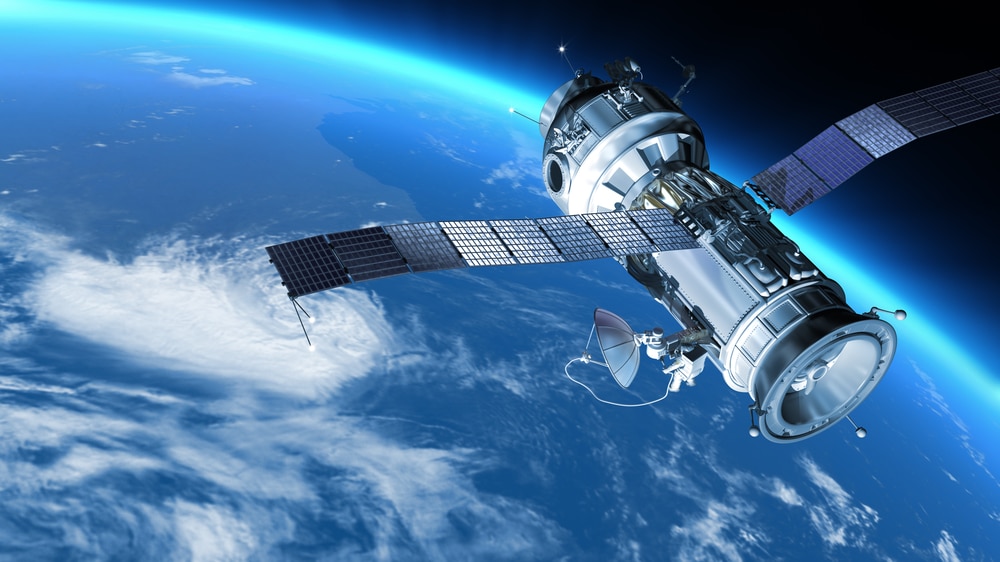What we think about Rocket Lab (RKLB)
Rocket Lab in Three Words: Disrupting the Space Economy

Discuss Rocket Lab in our Community Forum
Background
Whether it’s flying high, shooting to the moon, or skyrocketing into outer space, Rocket Lab’s recent stock performance has been absolutely legendary.
After already doubling in price year-to-date in early November, its third quarter results caused the stock to double again going into the final month of the year. After calming down just a bit in December, its stock is still up more than 300% during 2024.
One of the reasons for the renewed investor optimism is Rocket Lab’s announcement that its newest Neutron rocket is already receiving interest for both commercial and government contracts.
Specifically:
- It signed a launch service agreement for multiple launches on Neutron with a confidential commercial satellite constellation operator that signifies the beginning of a productive collaboration that could see Neutron deploy the entire constellation.
- It announced a federal defense contract that supports Neutron and the development of its Archimedes engine with the U.S. Air Force’s Research Laboratory.
- It is well-positioned to on-ramp to the U.S. Space Force’s National Security Space Launch (NSSL) Lane 1 program, which began accepting proposals in November 2024 to on-ramp new launch providers to an indefinite delivery indefinite quantity (IDIQ) contract valued at $5.6 billion over a five-year period.
Why This Matters
Neutron’s payload capacity is 30-40 times greater than its current Electron rocket. That means that instead of placing one or two satellites into orbit per launch, it can place an entire constellation of 3o to 50 satellites.
Rocket Lab has explicitly stated ever since it went public in the summer of 2021 that Neutron would be the inflection point of the company. Many investors scoffed and never expected it would ever succeed in its forecast of revenue growing 22-fold in six years — from $69 million in 2021 to $1.57 billion by 2027.
Yet in an industry where trust is everything, Rocket Lab has earned a lot of credibility by doing what it said it is going to do. It has not only met that revenue guidance it issued during its SPAC IPO, but it now looks like it will get Neutron to the pad as early as next summer.
What Investors Should Be Watching
I was one of Rocket Lab’s earliest fans and I originally recommended it to 7investing as soon as it went public in August 2021. It was still trading as Vector Acquisition at that time, and didn’t even trade as Rocket Lab until closing its SPAC merger on August 25.
From day one, it was clear that building a bigger rocket would the key to unlocking economies of scale. Neutron’s larger payloads and larger revenues per launch would vastly-improve Rocket Lab’s overall economics.
The company is currently generating an average of $8.3 million per launch of Electron, but will likely generate $50 million or more per launch of Neutron. The fixed costs related to launching rockets of any size — the personnel salaries, the facilities, the research & development costs, and the overhead — can be much more easily absorbed by the greater revenues and the larger payloads. Neutron was always expected to serve as the turning point Rocket Lab would need to become EBITDA and cash flow positive and to self-fund its growth without relying on external financing.
And it looks like we’re very quickly approaching that milestone. Successfully booking Neutron’s first customer has attracted several institutional investors who were previously sitting on the sidelines. Rocket Lab once again did what it said it was going to do. This de-risking event proves there’s still plenty of fuel left in the tank and there should be plenty of space-related puns prepared for it to launch into its newest journey.
Conviction Rating Changes:
Join 7investing to get access to this section
Recent Company Updates
Join 7investing to get access to this section
January 13, 2025:
"My DCF that tells me a fair value of $RKLB is $23 and that assumes only one Neutron launch this year. And that will be at half-price ($25 million) since it's the very first one.
After that, I assume 4 launches in 2026 and then 8 per year in all years going forward.
Not every customer needs to launch an entire constellation of satellites. But it does open up the potential for rideshare (satellites from multiple customers in the same launch), which would be more favorable pricing since it's a medium-lift rocket.
Rather than a completely dedicated launch using Electron -- which carries up to 300kg and goes exactly where you want, when you want it, for around $8.3 million -- Rocket Lab will soon offer customers an opportunity to rideshare using Neutron.
With Neutron, they could carry larger payloads (in total it can carry up to 13,000 kgs -- around 43x more than Electron).
So let's say larger customers want to carry up to 2,000 kgs of payload and Rocket Lab has 5 customers on the same rideshare launch (10,000 kgs total payload).
Rocket Lab has already said Neutron would charge around $50 million per launch. $50 million spread across 5 customers would be $10 million per customer.
That's only 25% more expensive than the $8.3 million for a ride on Electron. But you'd also able to carry a 6x larger payload (2,000 kgs / 300 kgs).
This is why I think Neutron is going to redefine the economics of space launch. Suddenly it will become *a lot* cheaper to get to outer space.



